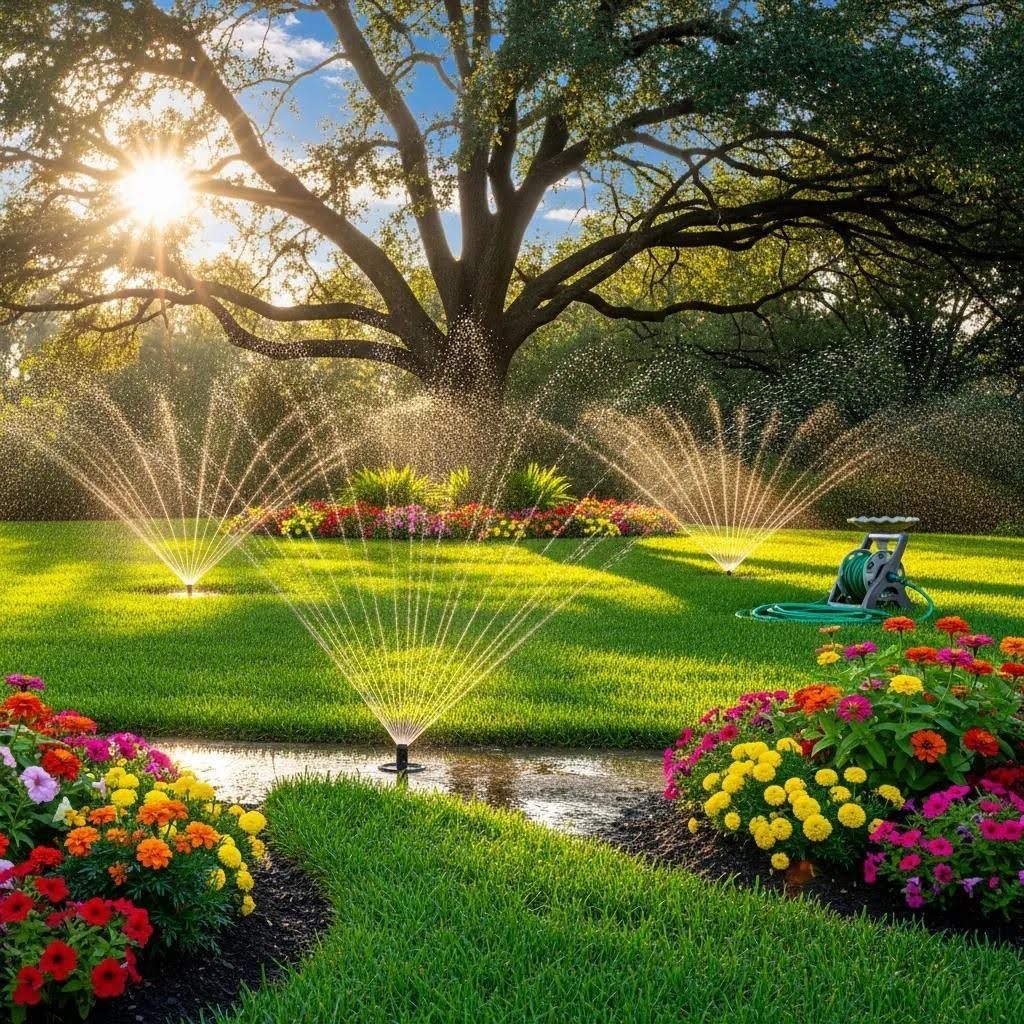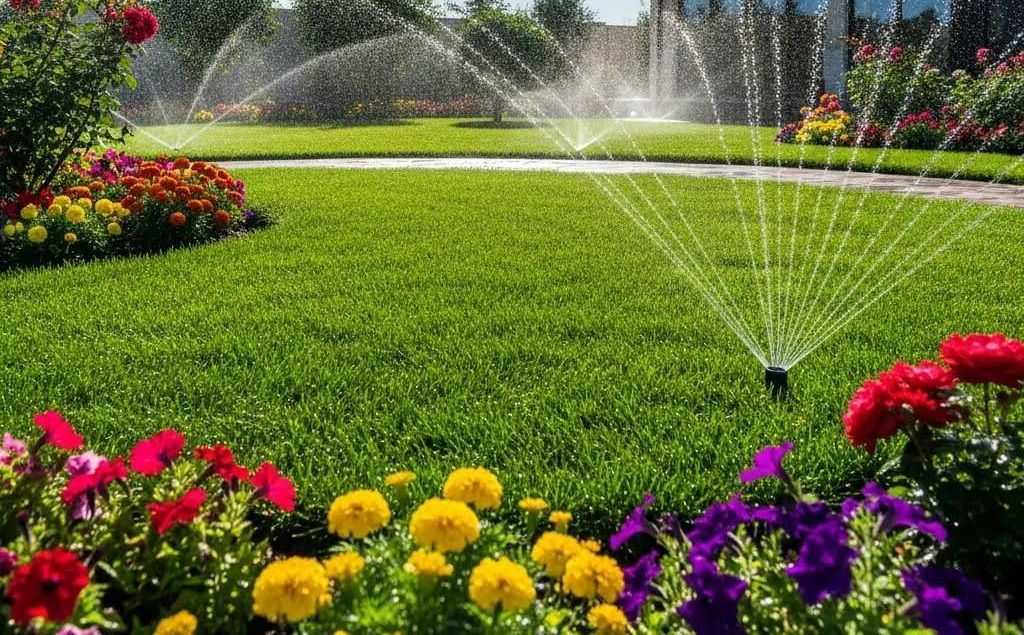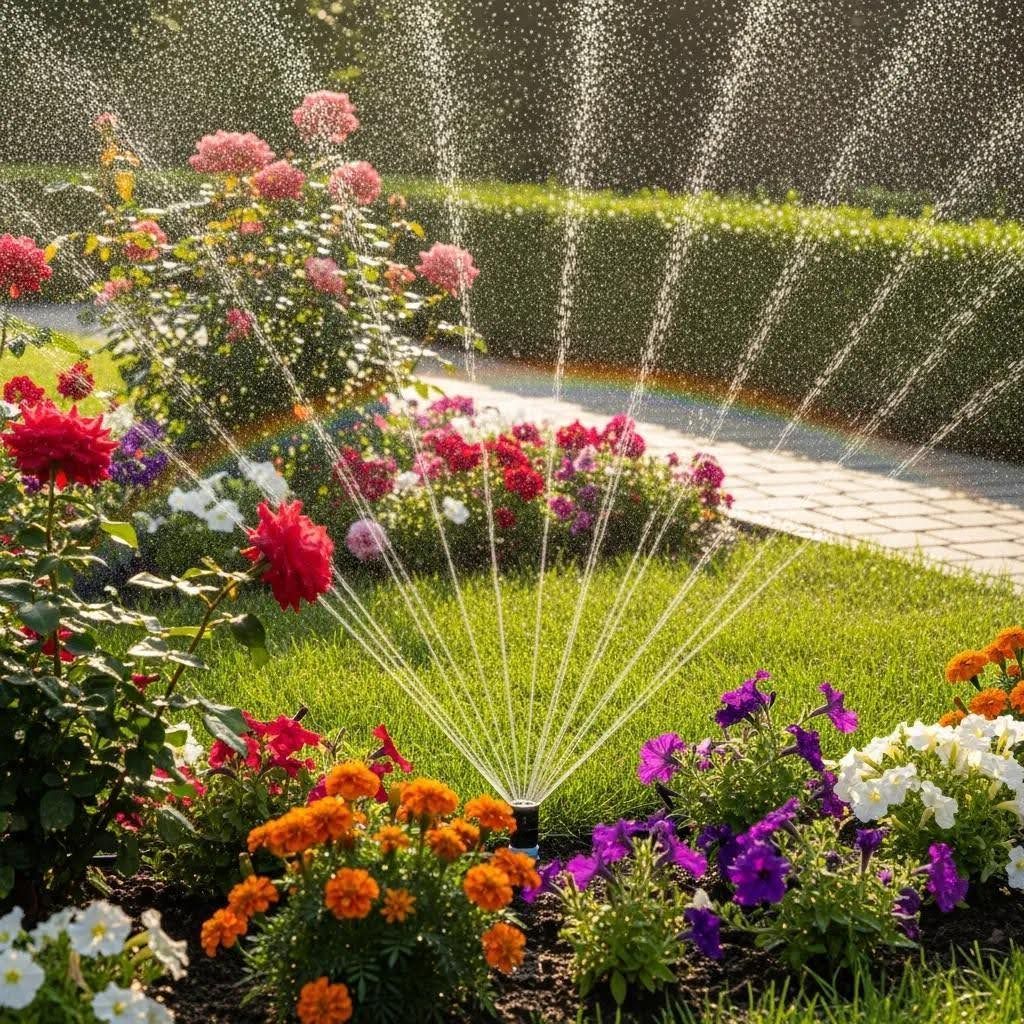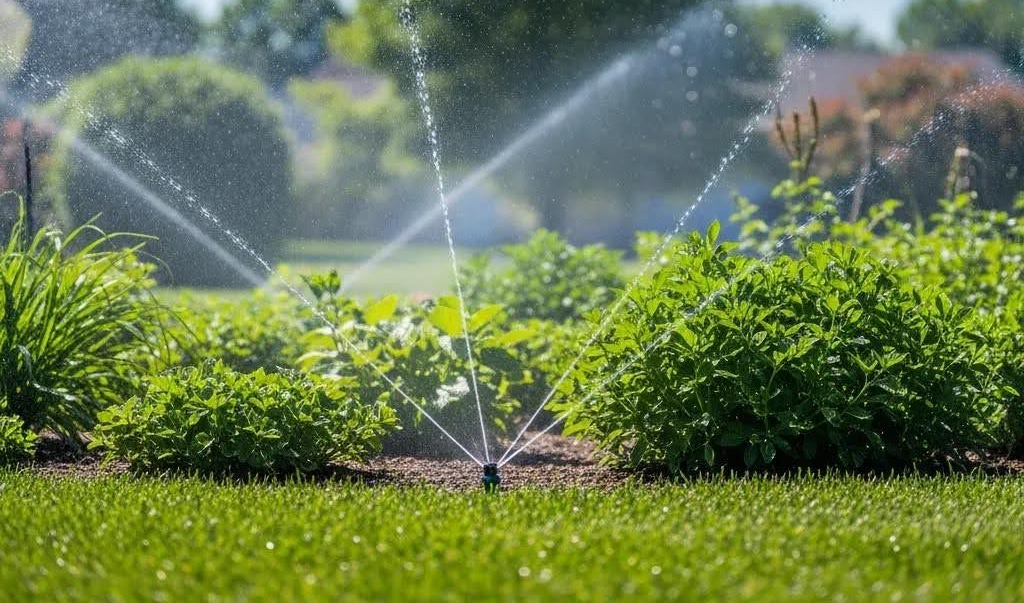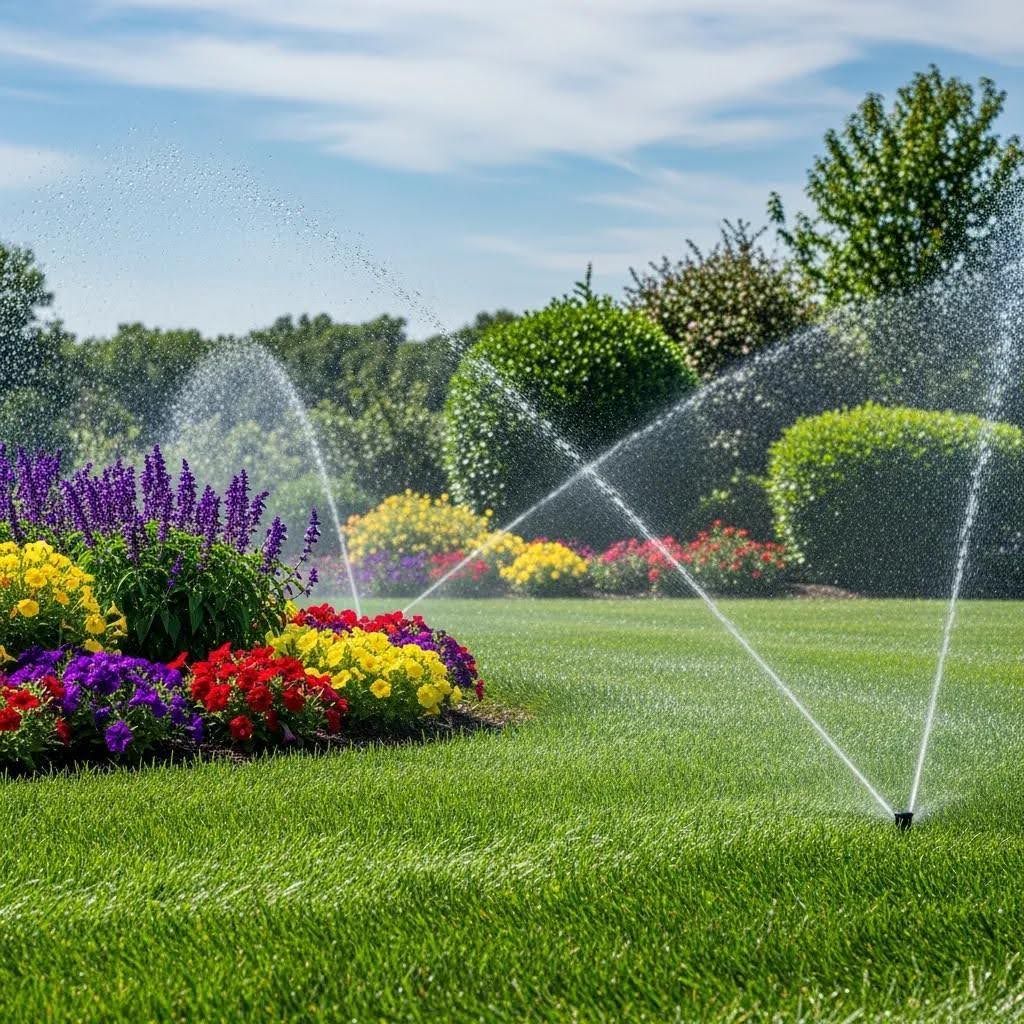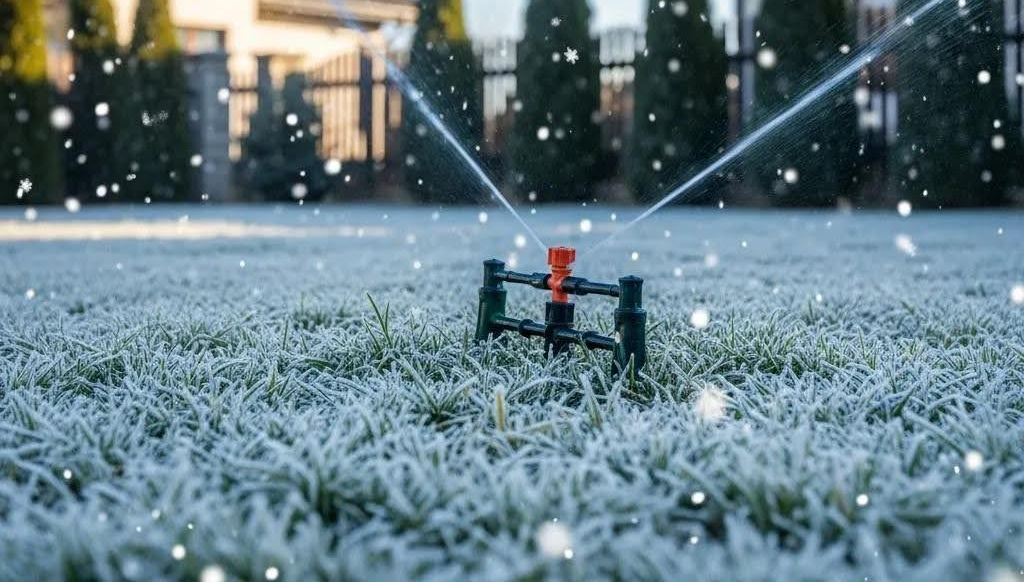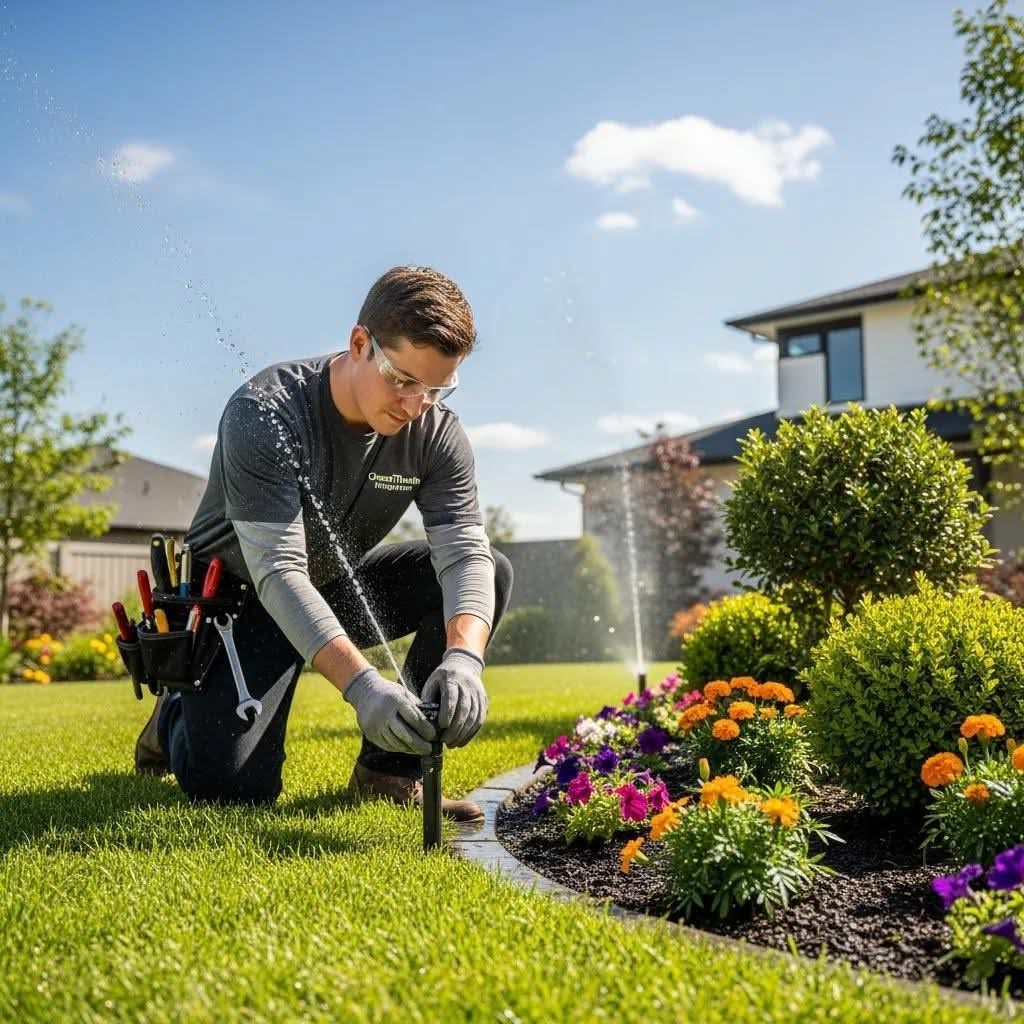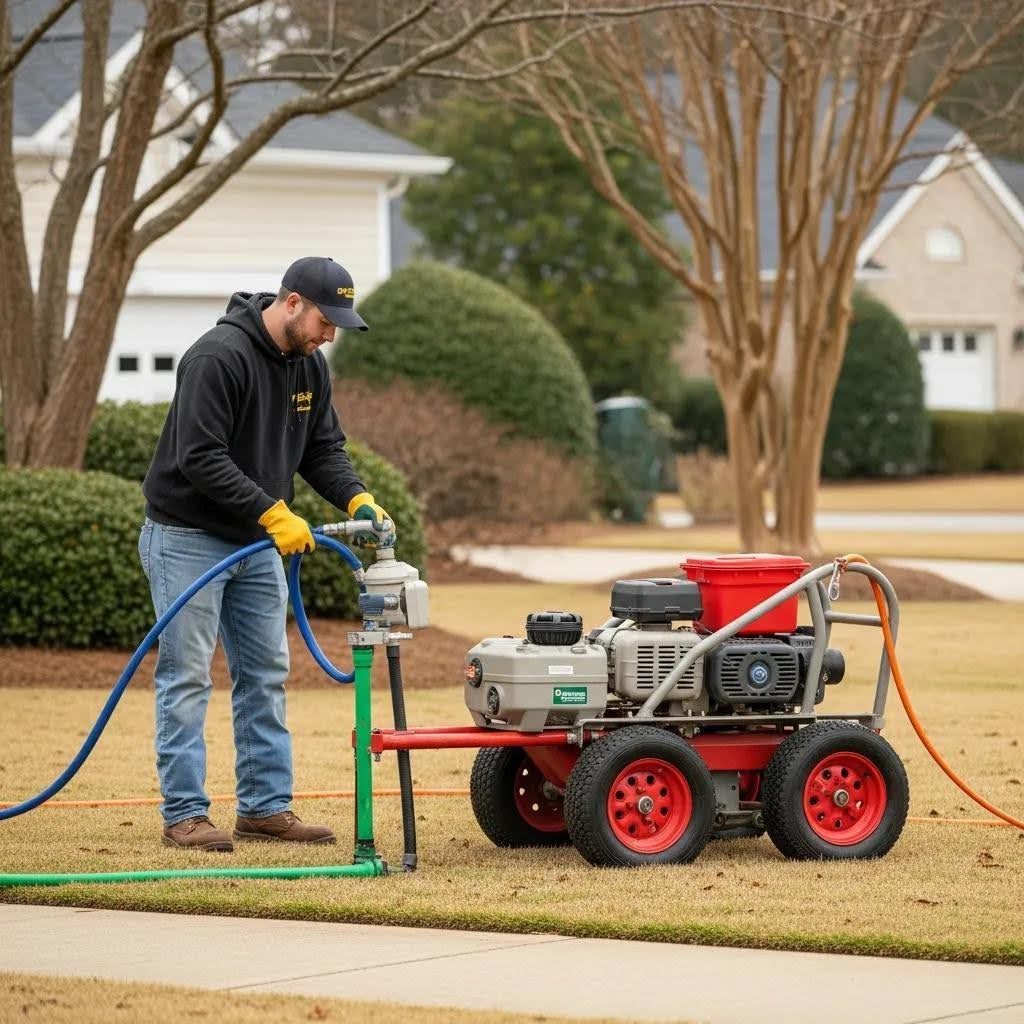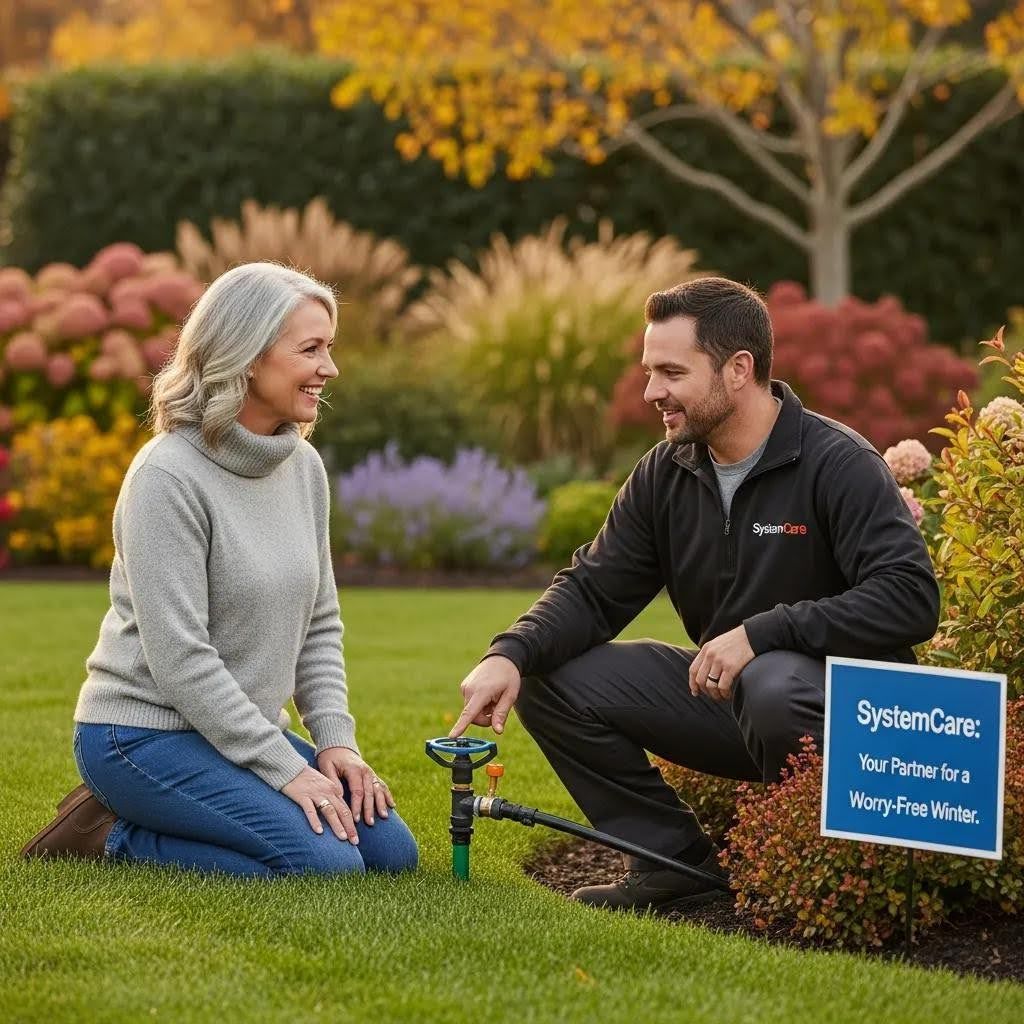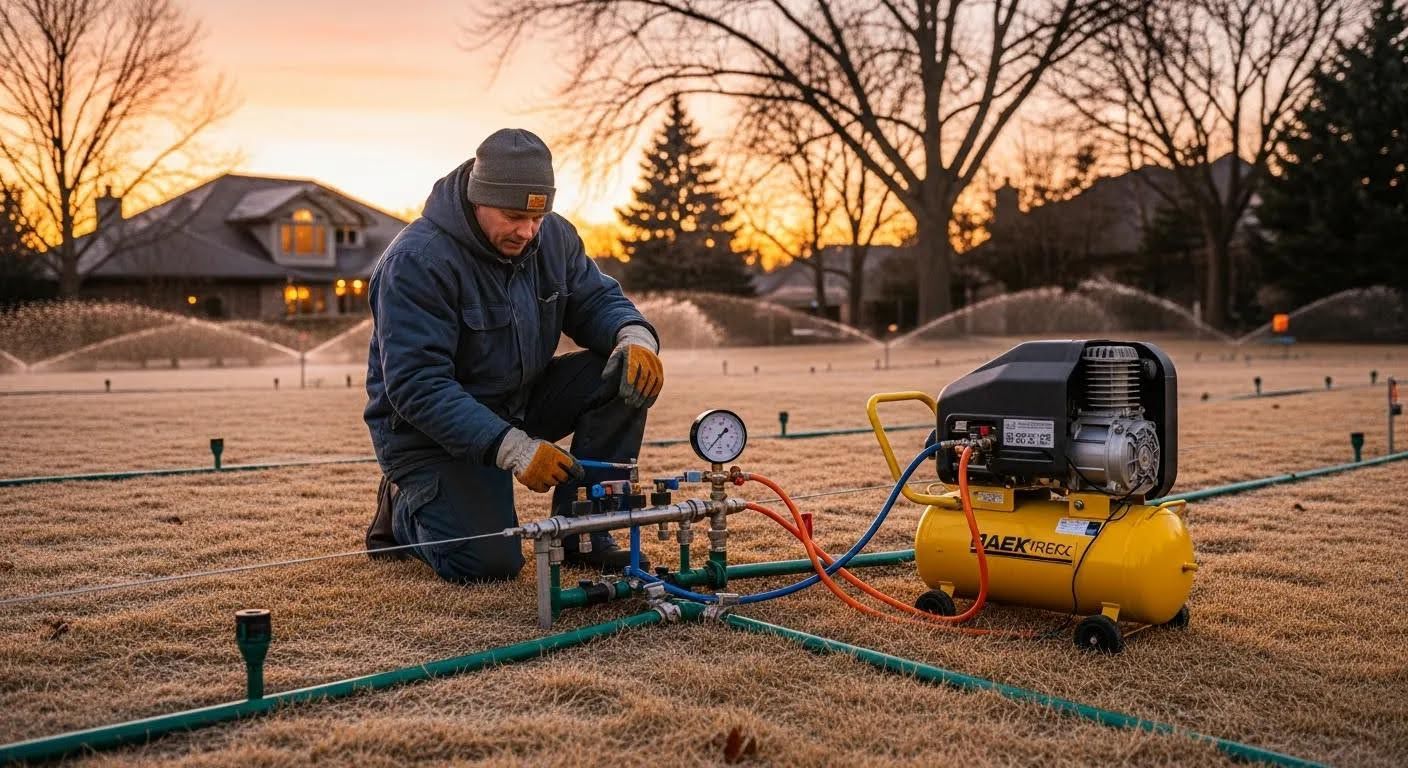How do backflow prevention and cross-connection rules impact irrigation installations in James City County?
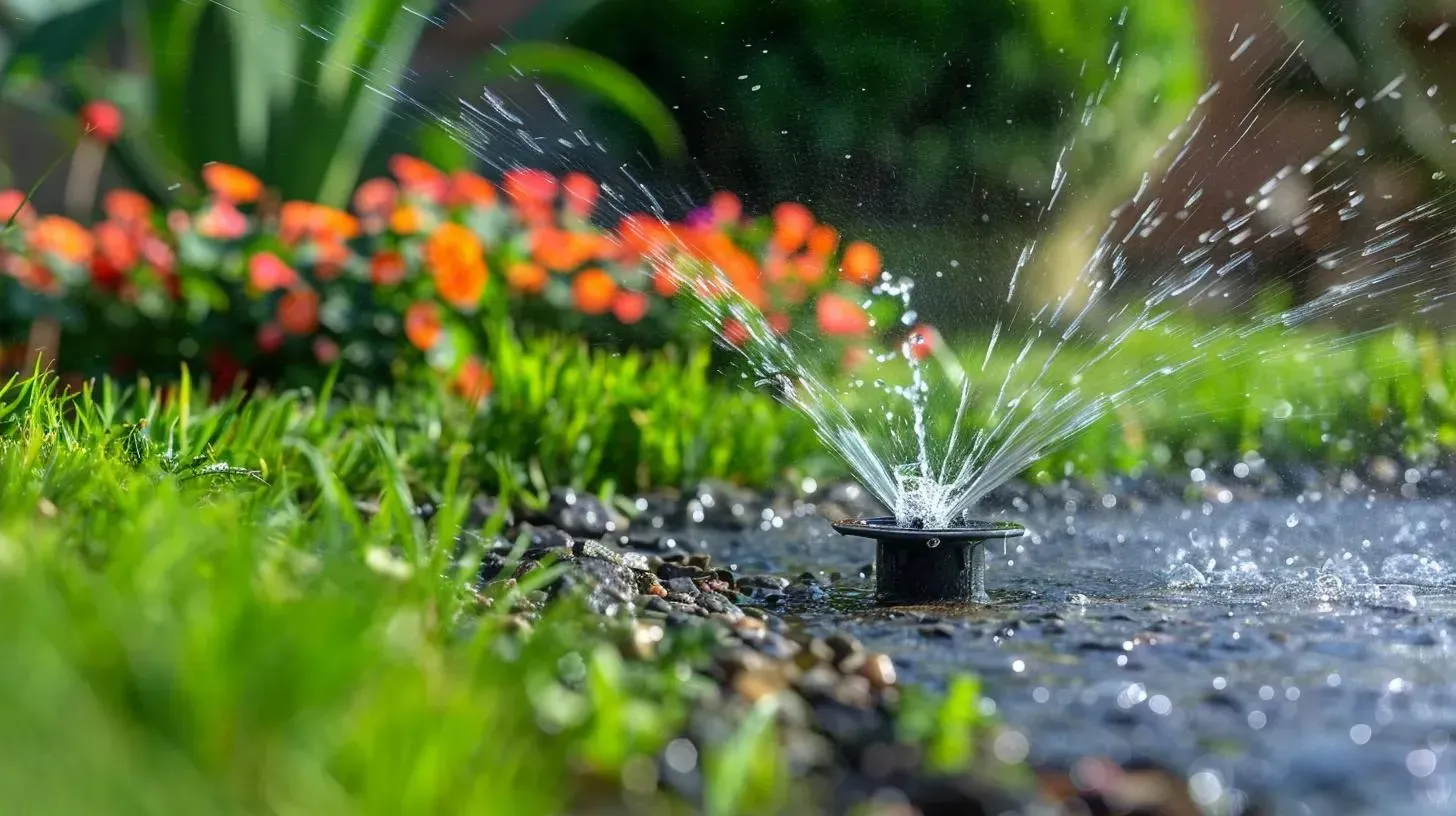
The beauty of a perfectly manicured lawn in coastal Virginia often relies on a sophisticated automated irrigation system. Yet, beneath that verdant surface lies a crucial layer of safety and compliance that every James City County (JCC) property owner must understand. Far more than just setting sprinklers, installing or maintaining an irrigation system in the Williamsburg area means navigating specific regulations designed to protect our shared public water supply. Understanding these mandates is not just a legal requirement; it is a fundamental responsibility that safeguards the health and well-being of the entire community. It is precisely because of this high standard that property owners turn to a trusted Irrigation Company in Williamsburg, VA for guidance and expert execution of these complex rules.
What is the primary purpose of the JCSA Backflow Prevention and Cross Connection Control Program for residents?
The paramount goal of the James City Service Authority (JCSA) Backflow Prevention and Cross Connection Control Program (BP&CCC) is simple but essential: to ensure the integrity and safety of the region’s potable (drinkable) water supply. This program is driven by federal and state mandates, including the Safe Drinking Water Act and the comprehensive Virginia Department of Health (VDH) Waterworks Regulations. The regulations are specifically designed to eliminate or properly protect against cross-connections, which are potential links between clean drinking water and non-potable or contaminated water. This is why every new irrigation installation is scrutinized.
A cross-connection is defined by the JCSA as any actual or potential physical connection or arrangement between a potable water system and any other source that could allow unwanted substances to enter the clean water line. In the context of a lawn sprinkler system, this link is unavoidable because the piping is buried beneath the ground, often near fertilizers, pesticides, and other contaminants. If a pressure drop occurs in the public main, this scenario creates the perfect opportunity for these hazardous substances to be pulled backward into the drinking water system—a process known as backflow. The JCSA program is the community's primary defense mechanism against this specific form of environmental hazard and public health risk.
The authority applies a containment policy, which dictates that the required backflow prevention device or assembly (BPA) must be installed on the property owner's private side of the water system. This installation point is typically as close as possible to the water service connection. By placing the protective assembly at this service point, the entire private system is contained, and any contamination event that might occur stays confined to the property itself, preventing it from migrating into the public mains serving the neighborhood. This philosophy shifts the immediate responsibility for device maintenance and testing directly to the property owner, ensuring vigilant oversight of the physical protection device.
As an experienced Irrigation Company in Williamsburg, VA, we recognize that this regulatory framework is crucial, and we guide our clients through every step. This commitment to compliance is fundamental because the JCSA treats irrigation systems as a "high hazard" due to the regular use of chemicals like lawn treatments and the submerged nature of the sprinkler heads. Neglecting these mandatory requirements is not just a breach of local ordinance; it is a direct threat to the community’s collective drinking supply. We ensure every system we install meets or exceeds the strict standards laid out by the James City County code and the JCSA.
Navigating the Mandatory JCSA Irrigation Permit and Connection Process
Before the first trench is dug for a new lawn sprinkler system in James City County, the property owner or their licensed contractor must successfully navigate a multi-step permitting and connection process. This process is highly formalized and involves both financial commitments and detailed technical submissions to ensure adherence to local safety and water conservation standards. The first administrative hurdle is the requirement to pay the non-refundable Lawn Irrigation Connection (LIC) fee directly to the James City Service Authority. This fee is a significant up-front cost designed to cover the administrative overhead associated with managing the BP&CCC program and the connection itself.
The Critical Role of the Lawn Irrigation Connection (LIC) Fee
The LIC fee, which is a substantial investment, must be paid to the JCSA Operations Center located on Tewning Road. It serves as a necessary prerequisite to obtaining the actual plumbing permit required for the installation work. Crucially, the official receipt proving payment of this fee must be attached and uploaded to the application within the JCC PermitLink system. Without this proof of payment, the Building Safety and Permits Division will not issue the plumbing permit, creating an immediate and unavoidable roadblock to the project’s commencement. This strict sequential requirement highlights the importance the county places on controlling and tracking new irrigation connections to the potable water system.
Understanding the JCC PermitLink Submission Requirements
The actual plumbing permit application for the installation of the backflow prevention assembly (BPA) and the irrigation system is processed entirely through the James City County PermitLink website. This digital portal requires contractors or homeowners to provide detailed plans and documentation. These documents must include an accurate diagram of the proposed system, clearly illustrating the location and type of the BPA, all major physical features of the property, and the boundaries of the area designated for irrigation. This submission ensures that the design is reviewed for proper cross-connection protection before any construction begins.
Once the permit is submitted and the LIC receipt is attached, the county will review the plans to ensure compliance with the Virginia Plumbing Code and local ordinances. The contractor must verify the proper type and placement of all components, including the mandated rain sensor or smart controller. The entire system design must reflect an understanding of the gravity of cross-connection hazards and employ the highest level of protection appropriate for a high-hazard residential system. This attention to detail is the hallmark of a professional installation. When researching options for your home, consider checking our reviews to see how other local property owners have navigated this complex process.
The Mandate for Water Conservation Technology
A specific local requirement, James City County Ordinance 116A-36, mandates the installation of a rain sensor or a smart controller that effectively functions as a rain sensor on every new irrigation system. This ordinance underscores the county’s strong commitment to water conservation by preventing the system from running unnecessarily during or immediately after rainfall events. The final inspection for the installation permit cannot be approved until a passing BPA test report is submitted that explicitly indicates this required water conservation device has been installed and is functional. This requirement integrates environmental stewardship directly into the compliance framework.
The complexity of simultaneously meeting technical plumbing codes, securing local permits, and adhering to conservation ordinances requires specialized knowledge. Hampton Roads Irrigation & Landscape specializes in this intersection of design, compliance, and installation, ensuring our clients receive a system that is efficient, legal, and safe from the moment it is commissioned. We proactively manage the JCC PermitLink submissions, coordinate the required inspections, and pay the necessary JCSA fees, streamlining the entire process for the homeowner. We understand that residents prefer a partner who can handle the administrative burden while delivering superior results.
Technical Deep Dive: Backpressure vs. Backsiphonage and Device Selection
The terms "backflow" and "cross-connection" are often used interchangeably, but it is critical to understand the two specific conditions that cause backflow and how different devices are engineered to mitigate them. Backflow is simply the undesirable reversal of water flow from a non-potable source into the potable water system. The two mechanisms that drive this reversal are backpressure and backsiphonage, and the type of backflow that is possible on a property dictates which backflow prevention assembly (BPA) is legally required.
Understanding the Two Forces of Backflow
- Backsiphonage: This occurs when a negative pressure, or vacuum, develops in the main water distribution line. The effect is similar to drawing liquid through a straw. Events like a water main break, nearby firefighting efforts drawing large volumes of water, or planned system flushing can rapidly depressurize the public water system. This vacuum can suck contaminants—like fertilizers and pesticides pooled near submerged sprinkler heads—backward through the irrigation system and into the clean water supply. This is a common and high-risk scenario that must be addressed by the chosen BPA.
- Backpressure: This occurs when the pressure downstream of the connection (in the private system) is greater than the pressure in the upstream public water supply line. While less common in standard residential irrigation systems, backpressure can be created by a booster pump installed on the property, or even due to thermal expansion if the irrigation line is connected to a non-potable heat source, such as a large commercial boiler. If chemicals are introduced into the irrigation line using a pressure-injection system, the pump used for injection creates a backpressure hazard.
The potential presence of these two hazards determines the required level of protection under the backflow prevention regulation Williamsburg adheres to. Because irrigation systems involve submerged components and are often exposed to chemicals, they are universally classified as a high-hazard cross-connection point. The VDH and JCSA require a device capable of containing contamination at the point of connection, protecting the main water supply from any potential hazards within the private plumbing.
Comparing the Two Approved Backflow Assemblies (BPA)
For high-hazard applications like residential and commercial irrigation systems in JCC, there are two primary approved mechanical assemblies: the Reduced Pressure Principle (RP) assembly and the Pressure Vacuum Breaker (PVB). The selection depends entirely on the degree of hazard and the potential for backpressure.
- Reduced Pressure Principle Assembly (RPZ): This device offers the highest level of protection and is the preferred standard for high-hazard connections. It features two independently operating, spring-loaded check valves, with a relief valve located in a chamber between them. If the first check valve leaks or fails, the relief valve opens to atmosphere, dumping the potentially contaminated water out onto the ground, preventing it from ever backing up into the potable water line. An RPZ is required in situations where backpressure is possible, or if the system uses any form of chemical injection for fertilization or pest control, making it the most robust option for comprehensive safety.
- Pressure Vacuum Breaker (PVB): This device is designed to protect exclusively against backsiphonage. It features a check valve and an independently operating atmospheric vent that opens to the air when the water pressure drops below atmospheric pressure. This action breaks the vacuum (or siphoning effect), preventing contaminated water from being drawn back. However, the PVB provides no protection against backpressure. For a typical residential irrigation system solely connected to the JCSA potable supply with no booster pumps or chemical injection, a PVB may be used, provided it is installed at the correct height relative to the sprinkler heads.
In all cases, the decision regarding the appropriate device must align with the JCSA’s specific requirements for the type of water source and the intended use of the irrigation system. Choosing the wrong type of device is an instant failure during the inspection process and places the property owner at risk of heavy fines. We believe that proper installation is a prerequisite to Efficient Lawn Care with Smart Irrigation in Williamsburg.
Specific Installation Standards and Annual Testing Compliance
Regulatory compliance in James City County does not end with selecting the correct backflow prevention assembly. The physical installation and ongoing maintenance of the device are governed by precise standards regarding location, height, accessibility, and mandatory annual testing. These requirements are in place because the mechanical components of the BPA are subject to wear and tear and can fail over time, rendering the entire containment policy ineffective.
Exacting Installation Requirements for BPAs
The Virginia Plumbing Code and JCSA regulations dictate several non-negotiable requirements for the physical placement and installation of the BPA:
- Location: The assembly must be placed on private property and located as close as practically possible to the water service connection. It must be accessible for easy testing and maintenance, meaning it should not be hidden behind landscaping or placed in an inaccessible pit.
- Height Requirements: This is a critical point of inspection, particularly for PVBs. The PVB must be installed at a minimum of 12 inches above the highest downstream piping or outlet (sprinkler head) in the entire system. This ensures that the atmospheric vent operates correctly. RPZ assemblies must typically be installed 12 to 36 inches above grade but are not constrained by the height of the downstream piping since their relief valve operates differently.
- Protection: Since the device is a mechanical assembly exposed to the elements, it must be protected from freezing, which can cause catastrophic failure. This typically requires either insulated enclosures or the ability for the property owner to drain and remove the device during the winter months—a process known as winterization. Properly installed unions on both ends of the BPA facilitate easy removal and replacement.
- Isolation Valve: An isolation valve must be installed between the water source and the BPA. This allows the water supply to the irrigation system to be completely shut off without affecting the potable water supply to the main structure, facilitating repairs and maintenance on the BPA.
Any deviation from these standards will result in a failed final plumbing inspection and necessitate costly re-work. The initial installation must be perfect, confirming that the potential for backflow is entirely eliminated.
The Non-Negotiable Annual Testing Mandate
The most consistent compliance requirement for all JCC homeowners with irrigation systems is the mandatory annual testing of the backflow prevention assembly. Since BPAs are mechanical, they are susceptible to failure from scale buildup, debris, or internal component wear. The Virginia Department of Health, the JCSA, and the International Plumbing Code all mandate that these devices be tested:
- Upon Installation: As part of the final plumbing permit inspection.
- After Repair or Relocation: Whenever any part of the device is serviced or moved.
- Annually: At least once per year to ensure continued reliable operation.
This testing must be performed by a Virginia State certified DPOR-licensed Backflow Device Worker, ensuring the tester possesses the proper credentials and calibrated equipment. The test report, which must indicate the device passed and that a rain sensor is installed, must then be submitted electronically to the JCSA through their online portal. This step is the property owner's official proof of compliance for the year. This crucial, recurring task is part of a routine schedule, just like the essential steps covered in our guide to the Williamsburg Guide to Mid-Season Irrigation Maintenance.
The Cross-Connection Control Law and Penalties for Non-Compliance
The JCSA Backflow Prevention and Cross Connection Control Program is derived from the overarching cross connection control law in Virginia, which emphasizes the shared responsibility of water purveyors and customers in maintaining safe water quality. The severity of the potential hazard—contaminating a community's drinking water—means that the enforcement of these rules carries significant civil and legal penalties. Understanding the legal structure and consequences is a strong motivator for maintaining impeccable compliance.
The Legal Framework: State and Local Enforcement
The state of Virginia, through the VDH Waterworks Regulations, requires all public water systems to establish and enforce a robust cross-connection control program. The JCSA, acting as the local water purveyor, implements this statewide mandate through its local utility regulations and ordinances. The JCSA uses a rigorous system of notices, inspections, and follow-up communication to ensure every required BPA is tested and certified on time. When a test report is missed or a device fails and is not immediately repaired, the regulatory process begins to escalate rapidly.
The responsibility for compliance always rests with the property owner. Since the JCSA implements a containment policy, the device is on private property, making the owner the party legally responsible for its operational status. This means that if a backflow event were to occur due to a failed or non-tested device, the property owner could be held liable for any resultant illness, death, or property damage, underscoring the severity of this seemingly simple maintenance task. The law is designed to create a strong incentive for consistent vigilance against potential hazards.
Consequences of Violating JCC Regulations
The fines and penalties associated with violating the JCSA BP&CCC program or the JCC Rain Sensor Ordinance are severe. They are designed to act as a deterrent against apathy and intentional non-compliance, reflecting the high stakes involved in drinking water safety.
- Financial Penalties: Violating the JCSA Utility Regulations can subject the property owner to a significant civil penalty. A common fine for non-compliance, such as failing to submit an annual test report after being notified, is set at $1,000.00. This fine often quickly outweighs the modest cost of the annual testing itself.
- Criminal Penalties (Class 1 Misdemeanor): The JCC ordinance specifies that any property owner found to be in violation of the BP&CCC program or the Rain Sensor Ordinance may be charged with a Class 1 misdemeanor. Upon conviction, this criminal charge is punishable by a minimum fine of $500. This is a severe legal consequence, emphasizing that water safety is treated as a matter of public health and law enforcement.
- Water Service Termination: If a backflow prevention assembly fails its test, the customer is typically given a limited grace period (often 20 days) to have the device repaired and retested. Failure to comply within this window results in the termination of water service to the property. Restoration of service will only occur after the failed device is corrected, retested, and a passing report is submitted to the JCSA.
The message from James City Service Authority is unequivocally clear: compliance is mandatory, and failure to act can result in costly and disruptive penalties. As a full-service provider, Hampton Roads Irrigation & Landscape works tirelessly to keep clients informed and on schedule, proactively reaching out for annual testing appointments.
The Professional Advantage: Partnering with a Local Expert
While the permitting and compliance process may appear daunting, the complexity is managed smoothly by partnering with a licensed and deeply experienced local professional. An established irrigation and landscape firm serving the Williamsburg area not only installs the physical components but acts as a regulatory concierge, ensuring every administrative and technical hurdle is cleared efficiently. This partnership transforms a potential regulatory headache into a seamless, turnkey experience.
Contractor Competence and Certification
In Virginia, the installation and, most critically, the testing and repair of backflow devices must be performed by appropriately certified individuals. Since January 1, 2023, the Virginia Department of Health has required that persons testing and repairing these assemblies be certified by the Commonwealth of Virginia tradesman certification program, specifically as licensed Backflow Prevention Device Workers. This requirement guarantees that the professional handling your device has undergone specific training in cross-connection control technology and understands the nuanced testing procedures.
A reputable company will employ these certified workers and maintain all necessary licenses and registration with the JCSA. When you choose an Irrigation Company in Williamsburg, VA, their credentials are a measure of their accountability. They should be able to produce documentation proving their proficiency in not only installing the components but also completing the mandatory electronic test report submissions that satisfy the JCSA’s new digital portal requirements. The professional handling of permits and certifications ensures that the system is commissioned correctly from the start.
The Role in System Integrity and Longevity
Beyond compliance, a specialized contractor ensures the entire irrigation system is designed for maximum efficiency and longevity, adhering to the spirit of the JCC water conservation ordinance. The selection of efficient sprinkler heads, the optimal zoning layout, and the proper configuration of the smart controller are all crucial for achieving the perfect lawn while minimizing water use. The contractor’s expertise ensures that the system integrates cutting-edge technology to manage watering schedules based on localized weather data, fulfilling the JCC’s requirement for a rain sensor in the most intelligent way possible.
If you have questions about the scope of work or scheduling your annual testing, please do not hesitate to contact us. We are ready to provide a detailed, no-obligation compliance check or a quote for a new, fully permitted irrigation system installation. A comprehensive maintenance plan, including timely winterization and spring start-up, is key to preventing wear-related failures in the backflow device and is an integral part of our service offerings.
Key Entities and Regulations Shaping Irrigation in James City County
The regulatory landscape for irrigation systems in James City County is a clear example of local government and utility authority collaborating to enforce state and federal public health laws. The primary entities involved—JCC, JCSA, and VDH—each play a distinct yet interconnected role in establishing, enforcing, and certifying compliance.
The James City Service Authority (JCSA)
The JCSA is the most direct authority governing water services and is responsible for implementing the BP&CCC program in the Williamsburg area. They manage the public water infrastructure and dictate the terms of connection for private systems. Their responsibilities include:
- Program Administration: Publishing and maintaining the official Backflow Prevention and Cross Connection Control Program manual.
- Fee Collection: Collecting the mandatory Lawn Irrigation Connection (LIC) fee.
- Compliance Tracking: Receiving and logging all annual backflow test reports, maintaining records, and issuing deficiency notices.
- Enforcement: Issuing fines and ordering water service termination for serious or persistent non-compliance issues.
The James City County (JCC) Building Safety and Permits Division
This county division is responsible for the physical enforcement and authorization of construction activities, including irrigation system installation. Their main role in this context is:
- Permit Issuance: Reviewing and approving the plumbing permit application (via PermitLink) for the backflow prevention assembly and irrigation line installation.
- Inspection: Conducting or overseeing the final inspection to ensure the BPA is installed correctly (location, height) and that the JCC-mandated rain sensor or smart controller is present.
The Virginia Department of Health (VDH)
The VDH provides the overarching legal mandate. They are the state body responsible for promulgating and enforcing the Virginia Waterworks Regulations.
- Regulatory Authority: Mandating that every public water system (like JCSA) must have a Cross-Connection Control Program.
- Certification Standards: Establishing the requirements for the licensing of the Backflow Prevention Device Workers (DPOR certification) who perform the mandatory annual testing.
This integrated system is designed to create multiple checks and balances, ensuring that no irrigation system is installed or operated in a manner that compromises the community's water safety. Partnering with a specialized Hampton Roads Irrigation & Landscape team simplifies this multi-jurisdictional compliance challenge.
FAQs: Your Questions on JCC Irrigation Rules Answered
To further clarify the complex regulations surrounding lawn irrigation systems, here are answers to five of the most commonly asked questions by James City County property owners. These answers synthesize the requirements of the JCSA, JCC, and VDH into easy-to-understand guidance.
1. What is the difference between a high-hazard and a low-hazard cross-connection?
A high-hazard connection involves a substance that could cause illness or death if introduced into the potable water system. Irrigation systems are classified as high-hazard because they can introduce toxic chemicals like fertilizers, pesticides, and animal waste into the drinking supply. Low-hazard connections involve non-toxic, aesthetically displeasing contaminants that do not pose a threat to public health. Because of the high-hazard classification, irrigation systems always require the most protective devices, such as the RPZ or PVB.
2. Can I install a PVB assembly if I use a fertilizer injection system?
No, if you introduce any chemicals, fertilizers, or pesticides into your irrigation system using a pressure injection pump or similar mechanism, a Pressure Vacuum Breaker (PVB) is prohibited. A PVB only protects against backsiphonage. The introduction of a pump or a chemical injection system creates a backpressure hazard, which only the most protective device—the Reduced Pressure Principle (RPZ) assembly—is legally capable of guarding against.
3. What happens if I miss the deadline for my annual backflow test?
Missing the deadline for the mandatory annual backflow test will trigger an escalation of enforcement actions from the JCSA. Typically, you will first receive a warning or notice of deficiency, providing a limited timeframe to complete the test and submit the report. Failure to act after this notice can result in the assessment of a $1,000 fine and, potentially, the termination of your water service until compliance is achieved. Prompt action is always advised to avoid these severe penalties.
4. Is the required rain sensor a separate device from a smart irrigation controller?
A dedicated rain sensor is a simple device that detects rainfall and interrupts the electrical signal to the irrigation controller, preventing unnecessary watering. A modern "smart irrigation controller," however, typically uses weather data (like real-time local rainfall, evapotranspiration rates, and temperature) fed through Wi-Fi to automatically adjust watering schedules. The JCC Ordinance 116A-36 requires a device that functions as a rain sensor. A fully functional, properly programmed smart controller fulfills this requirement and is often a more sophisticated method of ensuring water conservation compliance.
5. Why do I need to pay a $1,000 fee for a connection that is on my property?
The $1,000 Lawn Irrigation Connection (LIC) fee is mandated by the JCSA to cover the administrative, tracking, and enforcement costs associated with managing the public health risk posed by connecting a high-hazard system (irrigation) to the potable water supply. This fee helps fund the JCSA's comprehensive program, which includes the regulatory oversight, record-keeping, and the overall protection of the public water distribution network.
Ensuring Seamless Compliance and Lawn Health in Williamsburg
The convergence of local ordinances, state health regulations, and the technical demands of cross-connection control devices creates a significant responsibility for every property owner in James City County. From the initial $1,000 LIC fee and the complex PermitLink application to the precise height requirements of the backflow assembly and the mandatory annual test, every step is designed to safeguard the integrity of the region's drinking water. These regulations, stringent as they are, are non-negotiable foundations for responsible property ownership in the Williamsburg area.
By understanding the difference between backsiphonage and backpressure, knowing why irrigation is classified as a high hazard, and committing to the annual maintenance schedule, homeowners can protect themselves from fines, service interruptions, and potential legal liability. The expertise required to execute a compliant installation, including the required rain sensor and the correct placement of the BPA, is highly specialized.
This complexity underscores the value of partnership. Choosing a seasoned and locally certified firm provides the assurance that every permit is secured, every device is correctly installed, and every annual test report is submitted on time, guaranteeing seamless compliance with the JCSA. For those seeking expert installation, maintenance, and reliable annual testing for their system, Hampton Roads Irrigation & Landscape provides the licensed and insured service necessary to navigate the complexities of backflow prevention regulation Williamsburg demands. We are committed to providing the best service as a dedicated Irrigation Company in Williamsburg, VA.
